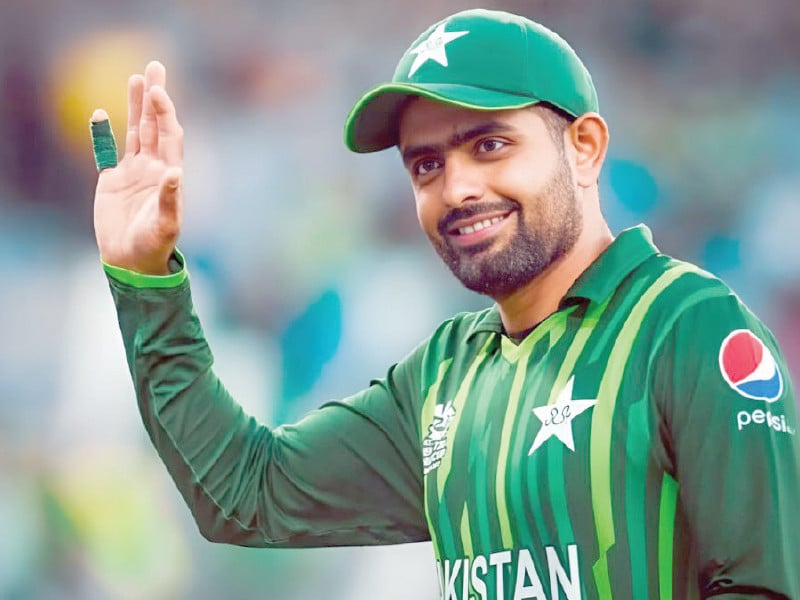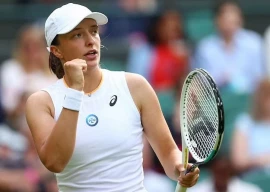
In the past year, Pakistan's cricket team has hit rock bottom, enduring a series of forgettable performances. They had a forgettable ODI World Cup in India, got knocked out from the T20I World Cup after an embarrassing defeat against the USA, lost a home Test series to Bangladesh 2-0, and topped it off after a humiliating loss against England after scoring 556 runs in the first innings.
However, no player has borne the brunt of this streak of woeful performances more than Babar Azam, which has resulted in his removal from captaincy and eventually drop from the squad.
Babar, who has been a prolific performer for Pakistan with the bat, maintaining averages of 44.51, 56.72, and 41.03 in Tests, ODIs, and T20Is, respectively, has scored at 18.75, 40.00, and 38.82 in the three formats in the last 12 months.
Social media, a mirror of societal sentiment, has turned what was once admiration into scorn. The same platforms that celebrated his successes are now battlegrounds of mockery and trolling.
I am not saying Babar is beyond criticism. His sloppy leadership led Pakistan to numerous defeats, and his performance with the bat has been underwhelming. However, when he needs fans' support, he is met with ridicule and disdain, even belittling his efforts over the years as a batter.
I have observed on different social networks that there is a sense of celebration upon his failure as if many were eagerly awaiting his downfall.
This behavior raises a bigger question: why do we, as a nation, struggle to celebrate and sustain our heroes?
This cycle of celebration followed by harsh criticism is not unique to Babar. Take the recent example of Arshad Nadeem, who made history by winning Pakistan's first-ever individual gold medal at the Paris Olympics with a record-breaking javelin throw of 92.97 meters.
The 27-year-old, who was already famous for his earlier accolades in the sport, became a national hero overnight, and rightly so. He was showered with prizes, awards, and praises for his mammoth achievement.
Yet, only days after his triumph, I came across a post on Instagram from a private company that gifted him a luxury car. I scrolled through the comment section to know the public sentiment and I was massively disappointed.
I saw people downplaying his success, commenting that the celebrations were overblown, resources should be invested in other sports, and even one woman compared her PhD to his gold medal, saying she should burn the degree.
The problem with this negativity is that I can already foresee the taunts Arshad might face if he fails to replicate his success in the next Olympics. His victory will be dismissed as a fluke, and those who celebrated him will be criticized for making too much of it.
Pakistanis still remember Hussain Shah, the iconic boxer who won the bronze medal in the 1988 Seoul Olympics. After the victory, the authorities made empty promises to Shah of a plot and other prizes, but he received nothing. He eventually moved to Japan, where he became a boxing coach and built a better life for himself and his family.
People still sympathize with him for being overlooked. However, if Shah were competing today and were rewarded for his achievement, those same people would have buried his accomplishment, calling it "just a Bronze."
The current bunch of cricketers, like Shadab Khan, Haris Rauf, Shaheen Shah Afridi, and Babar brought smiles to the faces of Pakistanis with their performances. It was their efforts that took Pakistan to the T20 World Cup semi-final in 2021, saw them defeat India for the first time in a World Cup match, and helped them reach the T20 World Cup final in 2022.
For a brief period, these players reignited the passion for cricket across Pakistan. Children mimicked Babar's cover drive and Hasan Ali's celebration on the streets, a sight to behold. Yet, as soon as their form dipped, the same fans who celebrated them were quick to mock and disown them.
By now, these cricketers have become strong enough to bear this brunt from the fans. But I fear for our heroes like Arshad Nadeem, who are not accustomed to the volatile wrath of their admirers. One misstep, and he might be lost in the darkness, where many of our forgotten heroes went missing.
Our love for heroes is often temporary, contingent on their continued success. We swiftly lift our superstars only to bring them down even quicker. And with each fall, it becomes harder to find new heroes willing to rise.





1725784957-0/Tribune-Pic-(17)1725784957-0-165x106.webp)












COMMENTS
Comments are moderated and generally will be posted if they are on-topic and not abusive.
For more information, please see our Comments FAQ